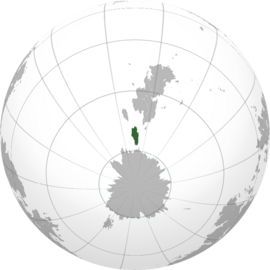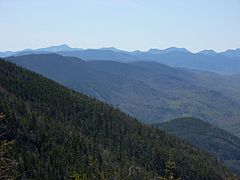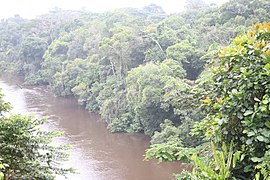Kujalleq
People's Democratic Republic of Kujalleq | |
|---|---|
Motto: "ᓄᓇᑐᖃᑦᑎᓐᓂ ᓂᕈᐊᕐᕕᖃᕈᓐᓇᕐᓂᖅ ᐊᔪᖅᓴᙱᓐᓂᖅ" Nunatuqattinni, Niruarviqarunnarniq, Njuqsannginniq "In Our Ancient Land, Democracy, Prosperity" | |
 Location of Kujalleq (dark green) | |
| Capital and largest city | Aputillu 67°28'S 52°32'W |
| Official languages | Kujaliqtitut |
| Ethnic groups | |
| Religion |
|
| Demonym(s) | Kujalleqi |
| Government | Unitary Marxist–Livasist one-party socialist republic |
| Amaruq Quassa | |
| Yuka Aglukkaq | |
• Premier | Olayuk Akesuk |
| Napachie Pootoogook | |
| Legislature | Inatsisartut |
| Formation | |
| 15 September 1853 | |
| 4 February 1957 | |
| 23 May 1958 | |
| Area | |
• Total | 572,180 km2 (220,920 sq mi) |
| Population | |
• 2030 estimate | 2,132,987 |
• Density | 3.7/km2 (9.6/sq mi) |
| GDP (nominal) | estimate |
• Total | $128.53 billion |
• Per capita | $60,258 |
| Gini | 21.2 low |
| HDI | very high |
| Currency | Kujalleqi Kannujaq (KKQ) |
| Time zone | UTC-10 |
| Driving side | right |
| Internet TLD | .kj |
Kujalleq (Kujaliqtitut: ᑯᔭᓕᖅᒥᑦ, Latinized: Kujaliqmit), officially the People's Democratic Republic of Kujalleq (ᐃᓄᐃᑦ ᓂᕈᐊᕐᕕᖃᕈᓐᓇᕐᓂᖏᑦ ᑯᔭᓕᖅᒥᑦ, Inuit Niruarviqarunnarningit Kujaliqmit, PDRK), is an island country in the subcontinent of Peratra in western Australis. It is the southernmost country in the world and is connected to mainland Australis year-round by the Australis ice sheet. With an area of 572,180 km2 (220,920 sq mi) and a population of just over 2.1 million, it is one of the world's most sparsely populated countries. However, over 97% of its population reside north of the Paqkijittiavat Mountains along the Bay of Diamav in a region that makes up just 4% of its land area. This region has a significantly higher population density than the country as a whole and the capital and largest city of Kujalleq, Aputillu, is located here.
The ancestors of the Kujalleqi began arriving in Peratra from southern Crona approximately 15,000 years ago. Arriving by sea, they settled the majority of the subcontinent and lived a nomadic hunter-gatherer lifestyle. Following the arrival of the Polynesians from south-east Alshar in the the 3rd millenia BCE, the ancestors of the Kujalleqi disappeared from mainland Peratra, likely being assimilated into the arriving Polynesian culture or wiped out by infectious diseases transmitted by the Polynesians to which they had developed no immunity. Due to its lack of settlement by the Polynesians, the ancestors of the Kujalleqi persisted on the island of Kujalleq where they developed into the modern Kujalleqi.
Etymology
Why is your country called what it is? What is the source of that word or phrase?
History
What is a general overview of your country's path through history?
First era
How was your country originally settled?
Second era
What were the first political structures of your country? Did it have any very early rivals or was it controlled by a foreign country?
Third era
What were your country's first major moves on an international level?
Fourth era
Did your country ever have a period of significant decline or internal struggle?
Fifth era
Was your country subject to imperialism later in its life, or was it an imperial power?
Sixth era
How did the 20th century affect your country?
Geography
-
First lovely location
-
Second lovely location
-
Third lovely location
-
Fourth lovely location
-
Fifth lovely location
-
Sixth lovely location
What is the general explanation of how your country exists within the world?
Climate and environment
Is your country hot or cold?
Government and Politics
How is your country ruled or governed?
Executive
Who is responsible for making high level choices in your country? Does it have a President or King?
Legislative
Who decides the laws for your country? Is there political parties and a legislature?
Federal subdivisions
How is your country divided? Are there states or provinces, or is the country directly governed from the capital as a unitary state?
Politics
What political factions exist? Who has ruled predominantly?
Law
What kind of laws and legal system does your country employ?
Demographics
What kind of people live in your country?
Ethnicity
What ethnic groups make up your country?
Language
What language or languages do your country's people use? Are there any previously used languages no longer common? Are these languages native to your country or shared with another?
Religion
Religious affiliations in the XXX (20XX)
What do your country's people believe in religiously, if anything? How many groups are there?
Education
How many people in your country are educated?
Culture and Society
What do your people do, and what are they like?
Education
What is your country's education system like? How do the schools work? What do people think about education?
Attitudes and worldview
How do your country's people view life?
Kinship and family
How are families or kinship groups structured in your country?
Cuisine
What do your people eat?
Religion
What do your people believe? Rather than demographics, as above, think about how important religion is to your people and their view about their own and other religions. What is the relationship between the prevailing view and minority religious groups? Is it an official religion, and do any laws exist about free worship?
Arts and Literature
What type of art do your people make? Do they have a tradition of painted art, well-crafted television shows, or great music?
Sports
Does your country have any major sports leagues? What types of sports are played, both professionally and for fun by your country's people?"
Symbols
Are there any prominent symbols which are well known to represent your country?
Economy and Infrastructure
How does your country's economy work?
Industries and Sectors
What are the largest parts of your economy in terms of what they do?
Currency
What exchange systems are used within your country's economy?
Healthcare
How do people in your country procure medical care? How is it paid for?
Labor
How is labor organized within your country? Are there any social institutions or unions which deal with labor concerns?
Transportation
How do people in your country get around? Is there a major highway system as well as sea- and airports?
Energy
What type of energy keeps your nation going? Are you renewable or use fossil fuels, and if you are renewable, how recently did your country transition?
Technology
How advanced is your country? Is it an innovator, or does it largely import new developments?
Military
How large is your country's military? Is it large but poorly equipped or small and elite? Does your country have a martial tradition?







